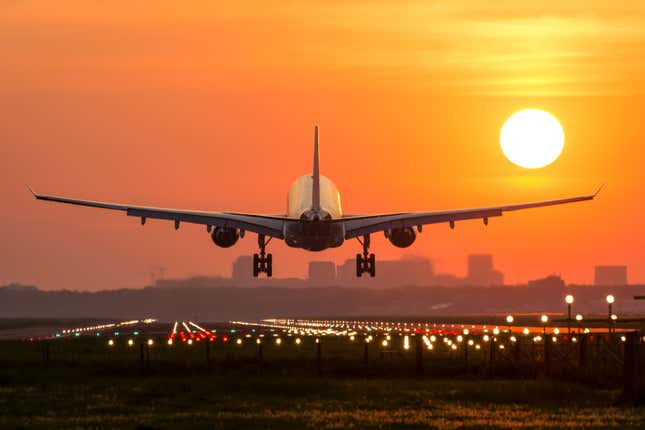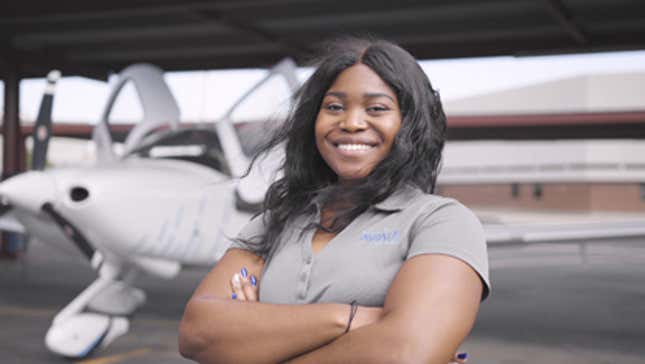
Saying that the aviation industry is dominated by white men is a huge understatement. According to the U.S. Bureau of Labor Statistics, only 5 percent of pilots are women, and 6 percent are people of color. But in January 2022, one of the country’s largest airlines launched a revolutionary flight training program that hopes to see those numbers grow.
Dana Donati is the CEO of United Arlines’ new Aviate Academy. There, she oversees a flight training school dedicated to diversifying the field of aviation. Among the first class of students participating in the year-long training program, 80 percent identify as women or people of color. The Root spoke with Donati about what makes this program unique and the impact she hopes it will have on the future of aviation.
A Commitment to Diversity in the Flight Deck
Although other companies have created a workforce pathway into aviation, Donati says United is passionate about ensuring diversity in the flight deck. “Developing a flight school is not new to aviation, but having an airline-owned flight school where we can really be intentional about how we’re recruiting pilots is super important to our mission,” she says. Donati says the United Aviate Academy is collaborating with non profit organizations who can help their efforts to attract a diverse pool of applicants. “Through these partnerships we can create more outreach and remove those barriers and open up access so that anyone who is interested in a career in aviation has the means to do so.”

Captains of United’s Boeing 787s and 777s can earn more than $350,000 per year. But earning a commercial pilot’s license in the United States can cost nearly $100,000. By removing the financial barriers, the program is already having a major impact on its participants, including Abby Awosanya, a 25-year-old first generation Nigerian-American who dreams of becoming a 787 Captain for United. Awosanya says she’s amazed at how much she’s learned in a short period of time. “The curriculum is challenging, but it has been extremely rewarding to see how far I’ve advanced. My education at the academy has given me so much confidence in my capabilities as a pilot, and I am excited to continue to develop my skills and expand my knowledge,” she said.
Strategic Partnerships Help the Recruitment Process
Partnerships with non profit aviation organizations helped generate over 14,000 applications for the first class. Donati says Aviate plans to target younger applicants as the program evolves. ”We’re going to be a little more intentional over the next few years to work with high schools and junior high schools to make sure students are aware of what they need to do to prepare for graduation and the pathway to aviation after graduation,” she says.
The Application Process
United Aviate Academy applicants must be 18 years of age and high school graduates. The multi-step application process includes a series of cognitive and personality assessments, an online interview and a pilot written test. “It’s not a very quick process, but it’s to ensure that we find the best applicants for United Airlines,” Donati says.
In addition to the technical training, Donati says the program provides social and emotional support to the students, including advisors who can help struggling students. “Our goal is to make sure that everyone at the United Aviate Academy feels welcome,” she said. “The more diversity we bring into the industry, the more welcoming it will be for everybody. Although people might encounter challenges along their way, we want them to know that United Airlines is fostering an environment to support them throughout their training but then also to be there for them throughout their careers.”

